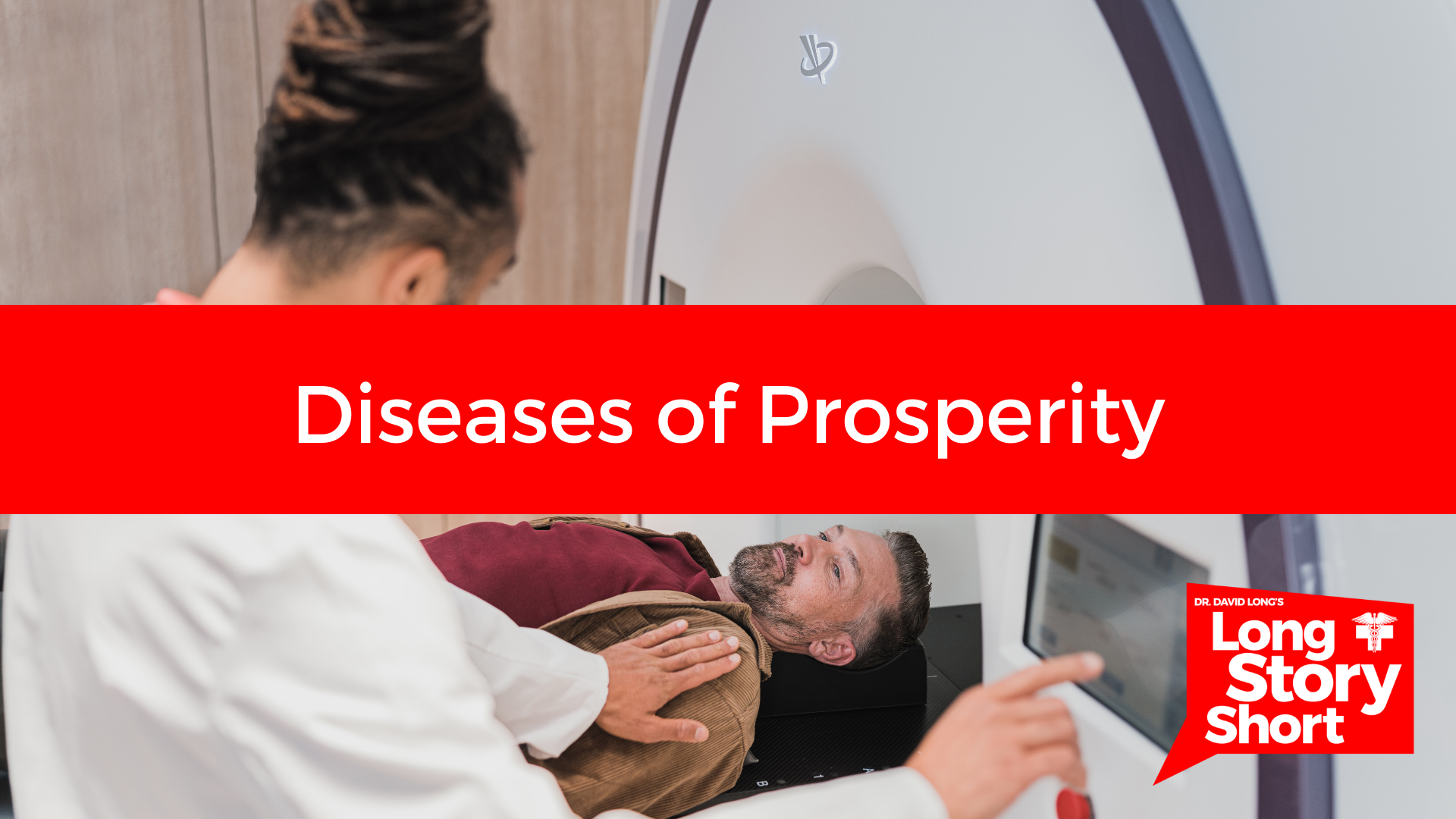Diseases of Prosperity Summary
• Dr. David Long talks about the “diseases of prosperity” that come from living in a prosperous society, such as obesity, hypertension, high cholesterol, and type two diabetes.
• He suggests that people can reduce their risk of these diseases by living more like someone who doesn’t have them – for example, by exercising more and eating less high calorie food.
• For those who already have these diseases, he recommends focusing on decreasing calorie intake and increasing activity level.
Full Text
When we’re young, nobody thinks about heart disease. Nobody thinks about chronic obstructive pulmonary disease when you’re 18 years old. But if you’re like me, as I’ve gotten older, you start to think more about hypertension and a family member with diabetes. And how did they get that? Where did that come from? How do I avoid it? I’m Dr David Long. I’d like to spend a few minutes with you today talking about the diseases of prosperity.
As it turns out, when we take a look at the health problems that cause heart disease in Americans, that kills Americans, what it boils down to is a list of things that I like to refer to as diseases of prosperity, high blood pressure, high cholesterol, obesity, diabetes (type two diabetes). These are things that we have because we live in such a prosperous culture, a prosperous society. I read about other countries and famine and starvation, and I think – I’m so grateful that I don’t live there, that I don’t have to deal with those things, and that’s absolutely true. But I think it’s helpful to keep in mind that our prosperous society comes at a cost.
You see a lot of the reason why we have obesity and hypertension and high cholesterol and type two diabetes is because we have air conditioners. We have automobiles. We have McDonald’s and Starbucks, and Walmart. These are wonderful things. But the truth is our bodies are really not engineered for that little activity, with that high calorie content food.
If you conversely, compare that to, say, a guy in Nicaragua, he’s growing fruits and vegetables in the ground to feed his starving family. He doesn’t have hypertension. He doesn’t have obesity. He certainly doesn’t have type two diabetes. Now, he might have scurvy. He might have malaria. These are diseases of poverty. But we simply don’t have the same problems they do. So what does that mean? What does that look like? Well, I think what it tells me is that if I’ll live a little bit more like that guy, then I can certainly reduce my risk of all of those diseases of prosperity. That is, if I will include some exercise into my daily regimen, because that guy exercises every day. If I will eat a little bit less high calorie content food, less sugar, less carbohydrates, then I will buffer myself. I will defend myself from the diseases of prosperity, prolonging my life, at least making me more healthy as I age.
So for those of us who do have hypertension, diabetes, obesity, high cholesterol, what we really need to do is focus on decreasing the calorie content of our food, decreasing the sugar intake and increasing our activity. Occasionally, medications may be necessary as well. Now medications are not inherently good, nor are they inherently bad. Sometimes that medication is why you’re not having a stroke in the parking lot. So no question, if your doctor says that you need a medication, you take it. But keep in mind that the diseases of prosperity are something that we acquire. Hypertension and diabetes (type two), is not something that just befalls us, and we don’t know why, we went and acquired those conditions. And in the same way, often times, but not always, we can change our life. We can challenge those diseases of prosperity with more exercise and a better diet, and those diseases of prosperity go away. One of the true pleasures of my career has been taking patients off medications, suggesting to them that you are a former diabetic. You are a former hypertension patient, and almost invariably, that happens when a patient makes lifestyle changes such that they don’t have the diseases of prosperity anymore.
I hope that you feel motivated to make some positive changes in your activity level and your diet. And if we at the clinic can help you in that endeavor, you let us know.





 and then
and then